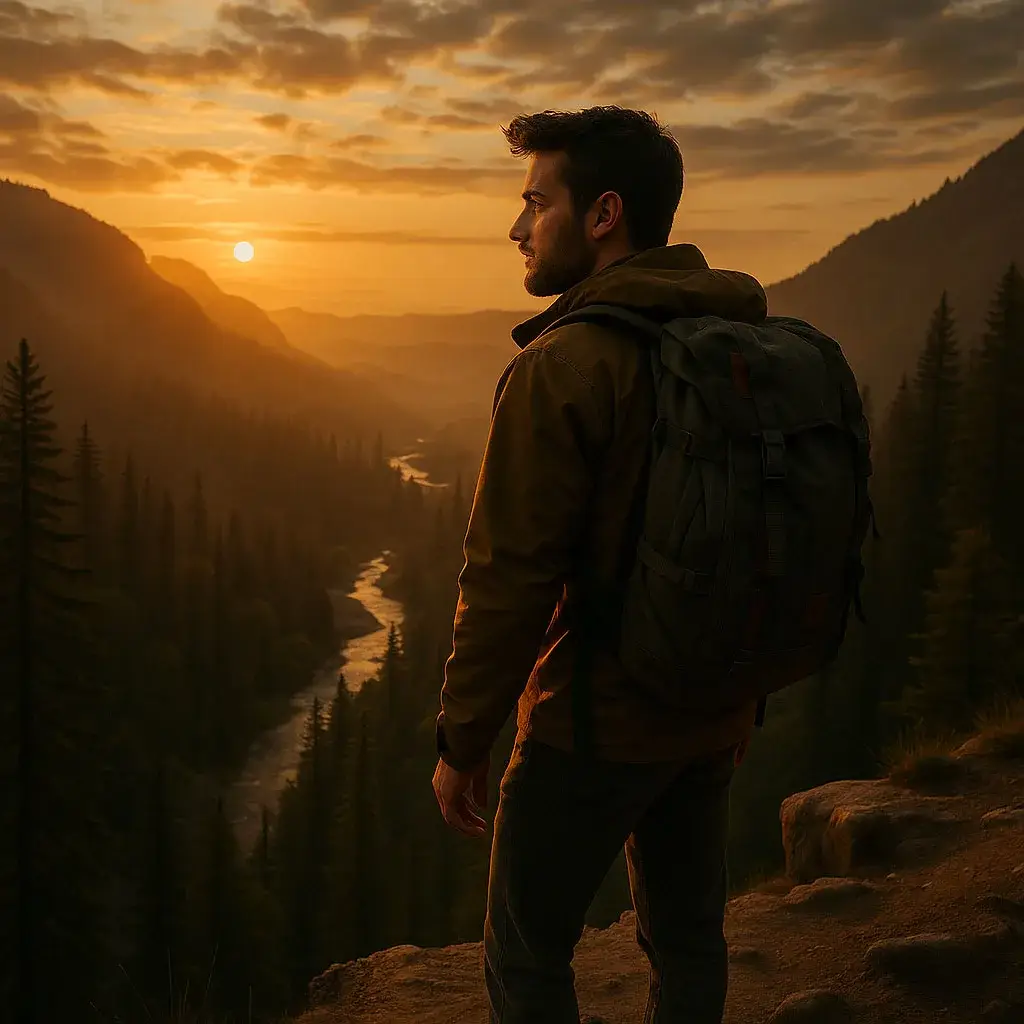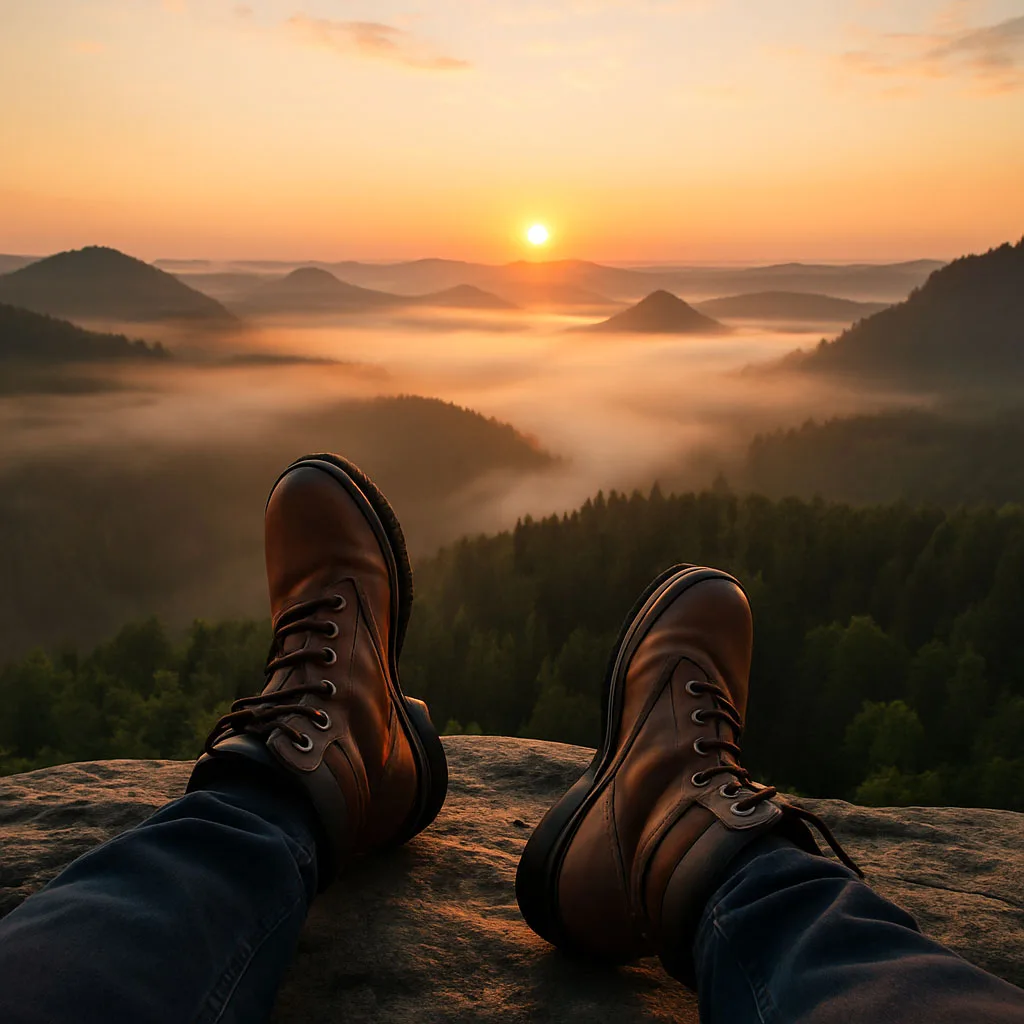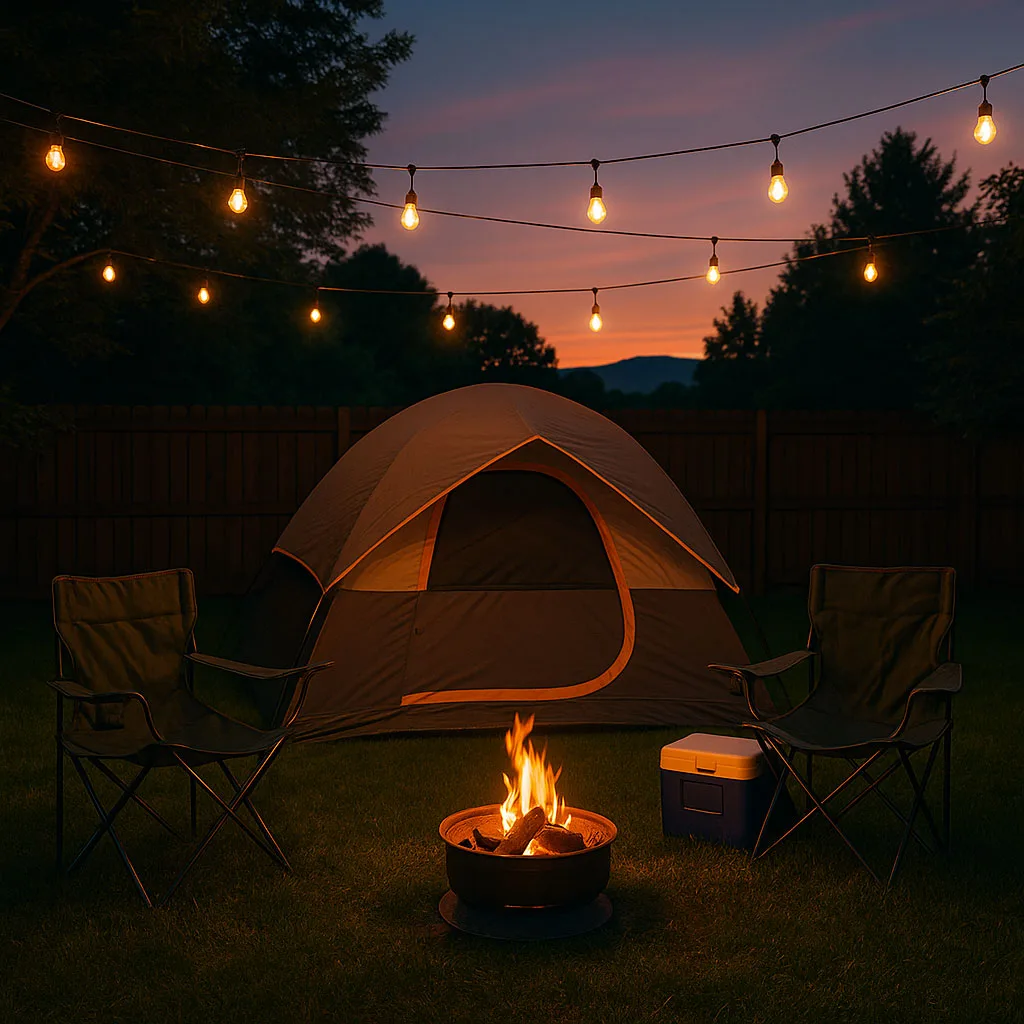


Let’s be honest, most of us don’t have the luxury to disappear into the wilderness for a week at a time. We’ve got Zoom meetings to survive, groceries to buy, and that mysterious “urgent” Slack message that always shows up at 4:59pm on Friday. But that doesn’t mean you have to wait for your next official vacation to get a taste of adventure.
Micro-adventures are the antidote to modern burnout. They’re small, manageable excursions that deliver big mental and physical rewards without requiring you to book flights, drain your savings, or use up precious PTO.
Whether you’ve got just one night, a full weekend, or even just a few hours, these 10 micro-adventures are tailor-made for busy guys who still want to live a little.
Coined by British adventurer Alastair Humphreys, the term “micro-adventure” refers to any short, local, and affordable outdoor adventure that fits into your normal schedule. Think of it as the espresso shot of outdoor escapes. Quick, energizing, and surprisingly satisfying.
Key Traits of a Micro-Adventure:
Can be done in a single day or over a weekend
Doesn’t require extensive planning or expensive gear
Often local or within a few hours’ drive
Offers a break from routine and reconnection with nature
Skill Level: Beginner
Ideal For: Unplugging without going off the grid
Hammock camping is the minimalist’s dream: no bulky tent, no complicated setup, just you swaying gently between two trees. Most state parks allow backcountry or designated camping for a small fee and many have trails, lakes, or views to explore once you’re there.
Pro Gear Tip: Choose a hammock with built-in bug netting and an underquilt or pad for insulation. It gets colder underneath you than you’d expect.
Bonus Value: This is a great way to test gear or skills before committing to longer backcountry trips. Plus, there’s something mentally soothing about falling asleep cocooned under the stars.
Skill Level: Intermediate
Ideal For: Hikers, photographers, and early risers (or those trying to become one)
Set your alarm for 3–4AM, brew some strong coffee, and hit the trail before the sun even thinks about rising. You’ll be rewarded with epic views and the kind of stillness that’s hard to find during daylight hours.
Packing List:
Headlamp with fresh batteries
Light breakfast or energy bar
Hot coffee in an insulated bottle
Layers (you’ll start cold, end warm)
Compact tripod or phone mount if you want sunrise selfies
Pro Value Add: This is a prime way to get your cardio in, enjoy nature’s therapy, and still be back before your buddies have finished brunch.

Skill Level: Intermediate
Ideal For: Resetting your stress levels and flexing your confidence
Night hiking pushes you out of your comfort zone in a good way. Your vision adjusts, your senses heighten, and familiar terrain takes on a mysterious new vibe.
What You’ll Learn:
How to trust your instincts
How to navigate with limited visibility
That squirrels are louder than they should be at night
Safety Reminder: Pick well-marked trails and always tell someone your plan. Bring backup lighting and a fully charged phone (even if you plan to stay off it).
Skill Level: Moderate
Ideal For: Water lovers, solitude seekers, and minimalist packers
With the right location, you can paddle out on a Saturday morning, camp on a riverbank overnight, and float back by Sunday. Many rivers have access points or established paddle trails designed for just this.
What You’ll Need:
Waterproof dry bags
Life vest (always)
Lightweight tent or hammock
Water filtration system
Added Value: Paddling gives you access to places that hikers can’t reach—think secluded coves, remote islands, and peaceful campsites only reachable by water.
Skill Level: Easy to Moderate
Ideal For: City dwellers who want to break routine without leaving town
The Urban Survival Challenge is about using the city differently. Turn off your GPS, grab a paper map, and “forage” for food by only visiting locally owned spots you’ve never tried before. Make your city feel unfamiliar again.
Activity Enhancers:
Start with a single backpack and leave your phone on airplane mode
Document your discoveries in a field notebook or disposable camera
Cap it off with a rooftop or park sunset session
Why It Works: It reignites curiosity and gives you a fresh perspective on your surroundings, without ever leaving your zip code.
Skill Level: Beginner
Ideal For: Families, introverts, or guys who want low-effort nature therapy
You don’t need a national forest to experience the outdoors. Your backyard, balcony, or local green space can host a micro-adventure of its own.
Make It Count:
Build a small fire pit or use a portable one (check local laws)
Cook a meal outside. Bonus points for foil-pack recipes or hot dogs on a stick
Turn off all screens. Yes, even the smartwatch.
Why It’s Valuable: You train your mind to detach from digital noise and appreciate the simple stuff. It’s also a great gateway activity for those with kids or minimal free time.

Skill Level: Intermediate
Ideal For: Cold-weather enthusiasts who want to stay active year-round
Too many guys treat winter like a waiting room for spring. Don’t be that guy. Snowshoeing or ice hiking turns winter into a new playground, crunchy snow, frozen waterfalls, animal tracks. It’s a vibe.
Things to Know:
Dress in breathable layers (avoid cotton)
Carry extra gloves and high-calorie snacks
Bring trekking poles for stability
Pro Tip: Rent gear before investing. Most outdoor stores or parks have affordable rentals.
Skill Level: Beginner
Ideal For: Cardio junkies, history lovers, and gearheads
Rails-to-Trails routes are converted railroad corridors that now serve as paved or gravel bike paths. They’re scenic, usually flat, and often peppered with small towns and hidden gems.
Add Value By:
Turning the ride into a culinary crawl: grab coffee at one stop, lunch at another
Using the ride to test out new bike gear or upgrades
Going with a buddy and competing for Strava segments
Why It’s Worth It: It’s a unique way to explore your region while staying active and getting a healthy dose of nature.

Skill Level: Beginner to Intermediate
Ideal For: Weekend warriors with a love for scenic drives and fresh air
Waterfalls aren’t just pretty, they’re the ultimate stress melters. Use AllTrails or a local hiking guide to find 2–3 waterfalls within driving distance. Plot a route and hit them all in one day.
What to Pack:
Waterproof hiking shoes
Change of clothes
Compact towel
Snacks, water, and a first-aid kit
Pro Strategy: Time your visits early to beat the crowds and catch the best lighting for photos. Post-adventure, hit a local brewery or dive bar for a well-earned pint.
Skill Level: Moderate to Advanced
Ideal For: Lifelong learners, foodies, and survival skills buffs
Foraging is like hiking with a mission. You’ll learn to ID wild edibles like dandelion greens, wild garlic, and mushrooms—and no, not the psychedelic kind (unless you’re into that, in which case: be extremely careful).
Where to Start:
Take a guided walk with a local forager
Use field guides or apps like Seek by iNaturalist
Only consume what you’re 100% confident is safe
Big Value: This builds real-world knowledge, enhances your connection to the land, and makes you feel like the outdoorsy version of a Top Chef contestant.
Life gets busy. But micro-adventures remind us that it doesn’t have to be all hustle, all the time. These small, intentional escapes reconnect us with nature, ourselves, and often, with the people we bring along for the ride.
They’re not about chasing some “epic” Instagram-worthy life. They’re about living. In real time, in real places, with real purpose.
Whether you’re decompressing from work, trying to shake off a creative rut, or just craving more life in your life, a weekend micro-adventure can deliver more than just a temporary break—it can reboot your mindset entirely.
1. Identify your time window: Be honest about what your schedule can handle. A 4-hour hike can be just as refreshing as a weekend trip.
2. Set an intention: Do you want quiet? Adrenaline? Solitude? Camaraderie? This helps guide your choice.
3. Gear up smartly: Use what you have first. Only buy gear if you plan to use it more than once. Renting is fine!
4. Always leave no trace: Respect nature, pack out what you pack in, and leave it better than you found it.
5. Commit to going: Treat it like a meeting with yourself. You wouldn’t flake on your boss, don’t flake on your own adventure.
You don’t need a passport, PTO, or perfect weather to have an adventure. You just need to decide that you’re going. Pick one. Make a plan. And get out there.
Then come back and tell us how it went—we might even feature your story on TheAllGuy.com.
Want more ideas like this? Subscribe to the All Guy newsletter and get gear reviews, adventure guides, and man-approved outdoor hacks delivered right to your inbox.
Subscribe to our weekly newsletter. We don’t send any spam email ever!

Welcome to The All Guy. A blog dedicated to all the guys and topics they are interested in.
Copyright © 2026The All Guy. All rights Reserved.